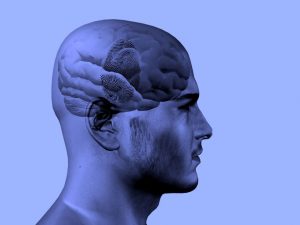Forensic Psychology Programs: PsyD vs PhD Comparison Guide

From “Silence of the Lambs” to “Criminal Minds,” forensic psychology has captured public imagination for decades. These portrayals, while dramatized, reflect genuine applications of psychological expertise in legal settings where trained professionals use doctoral-level knowledge to analyze criminal behavior, assess mental competency, and provide expert testimony.
Forensic psychology operates at the intersection of psychological science and legal practice. Whether assisting law enforcement with criminal profiling, conducting competency evaluations for courts, or providing therapeutic services in correctional settings, forensic psychologists play crucial roles in the justice system.
The field traces its origins to early 20th-century pioneers who recognized psychology’s potential contributions to legal proceedings. Today, with increasing litigation rates and growing awareness of mental health factors in criminal behavior, demand for qualified forensic psychologists continues to expand across both public and private sectors.
Professional forensic psychology practice requires specialized doctoral training that combines core psychological principles with legal knowledge, assessment techniques, and ethical considerations unique to forensic contexts.
Table of Contents
- What is Forensic Psychology?
- What Do Forensic Psychologists Do? – Job Description & Career Paths
- How to Choose the Right Doctoral Program in Forensic Psychology
- Forensic Psychology Doctoral Program Curriculum
- PhD vs PsyD Program Costs in Forensic Psychology
- Licensing and Certification Requirements for Forensic Psychologists
- Forensic Psychology Salaries and Job Market Outlook
- Frequently Asked Questions
What is Forensic Psychology?
Forensic psychology applies principles from clinical and research psychology to legal and criminal justice contexts. This specialized field bridges the gap between psychological science and legal practice, requiring practitioners to understand both psychological assessment techniques and the legal standards for evidence and testimony.
Forensic psychologists work with diverse populations within the legal system, including:
- Criminal defendants requiring competency evaluations or risk assessments
- Convicted offenders in correctional facilities need therapeutic intervention
- Witnesses and victims requiring psychological evaluation or testimony preparation
- Jury members in cases involving psychological consultation
- Legal professionals seeking expert consultation on human behavior
The field encompasses both clinical practice with individuals involved in legal proceedings and research into psychological factors affecting legal processes. Modern forensic psychology requires a deep understanding of legal principles, psychological assessment methods, and the ethical standards governing practice in legal contexts.

Historical Foundation: William Marston’s Pioneering Contributions
Forensic psychology pioneer William Marston made groundbreaking discoveries that shaped modern practice. His research into the relationship between blood pressure and deception led to polygraph development, establishing him among the first American psychologists to testify as expert witnesses in federal court.
Marston’s 1924 jury psychology studies involved convening mock juries to analyze decision-making processes, setting precedents for modern jury consultation. His extensive research produced nine books, twenty journal articles, and three Encyclopedia Britannica entries on criminal psychology.
Beyond academic contributions, Marston applied psychological principles to popular culture, creating the Wonder Woman character in 1941 under a pen name for DC Comics. His work exemplifies how forensic psychology expertise can influence both scientific understanding and cultural perspectives on crime and justice.
Contemporary forensic psychology operates within a complex legal landscape. According to Norton Rose Fulbright’s 2024 Litigation Trends Survey, major corporations spend an average of $3.9 million annually on litigation, creating substantial demand for psychological expertise in legal proceedings.
What Do Forensic Psychologists Do? – Job Description & Career Paths

Forensic psychology practice encompasses a diverse range of professional roles across clinical, consultative, and research domains. While media portrayals often emphasize criminal profiling, most forensic psychologists focus on assessment, treatment, and consultation within established legal frameworks.
Clinical Practice Roles
Psychological Assessment and Evaluation: The primary responsibility involves conducting comprehensive psychological evaluations for legal purposes. These assessments determine mental competency, assess risk factors, evaluate psychological damages, and provide diagnostic clarification for court proceedings.
Therapeutic Intervention: Many forensic psychologists provide specialized treatment for individuals involved in the legal system, including sex offenders, violent criminals, substance abusers, and victims of crime. Treatment approaches must account for legal mandates and institutional constraints.
Expert Testimony: Forensic psychologists regularly serve as expert witnesses, presenting assessment findings, explaining psychological concepts to juries, and offering professional opinions on mental health factors relevant to legal cases.
Consultation and Research Positions
Law Enforcement Consultation: Some practitioners work directly with police departments, federal agencies, or private security firms, providing behavioral analysis, crisis negotiation support, and psychological services for officers.
Jury Consultation: Private practice forensic psychologists may assist attorneys with jury selection processes, mock trial development, and trial strategy based on psychological principles of decision-making and persuasion.
Policy and Program Development: Senior practitioners frequently contribute to the design of correctional programs, the development of mental health policies, and institutional training initiatives.
| Practice Setting | Primary Responsibilities | Typical Client Population |
|---|---|---|
| Correctional Facilities | Individual therapy, group treatment, crisis intervention | Incarcerated individuals, parolees |
| Court Systems | Competency evaluations, risk assessments, expert testimony | Defendants, plaintiffs, family court cases |
| Private Practice | Forensic evaluations, consultation, expert witness services | Court-referred cases, attorney clients |
| Government Agencies | Policy development, research, direct services | Law enforcement personnel, policy makers |
How to Choose the Right Doctoral Program in Forensic Psychology
Selecting appropriate doctoral training represents a critical decision that will shape your entire forensic psychology career. The field’s popularity, often attributed to the “CSI Effect” from popular media portrayals, has created intense competition for quality program positions.
The CSI Effect describes the phenomenon where forensic science and psychology program enrollment increased dramatically following popular television series featuring crime scene investigation and criminal profiling.
This increased interest benefits prospective students by expanding program availability, but also intensifies admission competition. Successful applicants must demonstrate strong academic preparation, relevant experience, and clear career goals that align with the program’s strengths.
PsyD vs PhD in Forensic Psychology: Program Comparison
Your first major decision involves choosing between a Doctor of Psychology (PsyD) and a Doctor of Philosophy (PhD) degree path. Both lead to successful forensic psychology careers, but emphasize different aspects of professional preparation.
| Program Feature | PsyD Programs | PhD Programs |
|---|---|---|
| Primary Focus | Clinical practice and applied skills | Research and academic preparation |
| Clinical Hours Required | 2,000-3,000 hours typical | 1,000-2,000 hours typical |
| Research Requirements | Applied research projects | Original research dissertation |
| Career Preparation | Direct service, clinical practice | Research, teaching, administration |
| Average Duration | 4-5 years | 5-7 years |
PsyD Programs emphasize the development of clinical competency through extensive practicum experiences, direct client contact, and the practical application of therapeutic techniques. Coursework focuses on assessment methods, intervention strategies, and professional skills needed for immediate practice upon graduation.
PhD Programs prioritize research training, theoretical understanding, and academic preparation. Students develop expertise in experimental design, statistical analysis, and scholarly writing while building foundational knowledge for research careers or university positions.
Both degree types qualify graduates for licensure and for practice in forensic psychology. Your choice should align with career goals, learning preferences, and professional interests rather than perceived prestige differences.
Online and Hybrid Program Options
Contemporary forensic psychology programs increasingly offer flexible learning formats accommodating working professionals and geographic constraints. However, no accredited psychology doctoral program operates entirely online due to the mandatory requirement of supervised clinical experience.
Hybrid Programs combine online coursework with in-person clinical training, allowing students to complete theoretical content remotely while fulfilling hands-on requirements through local placements. This format provides scheduling flexibility while maintaining essential experiential learning components.
Benefits of Hybrid Training:
- Geographic flexibility for program selection
- Continued employment during studies
- Reduced relocation and housing costs
- Self-paced learning for online components
Considerations for Online Components:
- Requires strong self-discipline and time management
- Limited face-to-face faculty interaction
- Potential challenges with peer networking
- Technology requirements and reliable internet access
Admission Requirements and Competitive Positioning
Forensic psychology doctoral programs maintain highly selective admission standards due to their limited capacity and high volume of applicants. Successful candidates typically demonstrate exceptional academic preparation, relevant experience, and clear professional goals.
Academic Prerequisites:
- Bachelor’s degree with minimum 3.0 GPA (3.5+ preferred)
- 15+ psychology credit hours, including abnormal psychology
- Statistics and research methods coursework
- Strong performance onthe GRE or equivalent standardized tests
Experience Requirements:
- Volunteer work in mental health or correctional settings
- Research experience with faculty mentorship
- Professional work in related fields
- Leadership roles demonstrating initiative and responsibility
Build meaningful relationships with supervisors and faculty members who can provide detailed recommendation letters highlighting your potential for forensic psychology success. Generic recommendations significantly weaken application competitiveness.
Application Materials:
- Comprehensive personal statement addressing career goals and program fit
- Three professional reference letters from supervisors or faculty
- Curriculum vitae documenting all relevant experience
- Official transcripts from all institutions attended
APA Accreditation: Essential Quality Assurance
American Psychological Association (APA) accreditation represents the gold standard for doctoral programs in psychology. Only graduates from APA-accredited programs qualify for psychology licensure in most jurisdictions.
APA accreditation ensures programs meet rigorous standards for:
- Faculty qualifications and scholarly productivity
- Curriculum comprehensiveness and integration
- Student admission and evaluation procedures
- Clinical training quality and supervision
- Program outcome measurement and improvement
Beyond licensure eligibility, APA accreditation provides employers and courts with confidence in the quality of graduate preparation. This credibility proves essential for expert witness qualification and professional advancement opportunities.
For comprehensive program rankings and comparisons, review our APA Accredited PsyD Program Rankings, featuring detailed analysis of top forensic psychology training options.
Forensic Psychology Doctoral Program Curriculum

Forensic psychology doctoral curricula integrate foundational knowledge of psychology with specialized legal applications. Most programs structure training around core psychology competencies enhanced by forensic-specific coursework, clinical experiences, and research opportunities.
Core Psychology Foundation Courses
History and Systems of Psychology: Comprehensive examination of psychological theory development from philosophical origins through contemporary evidence-based practices. Students explore major theoretical perspectives, including behavioral, cognitive, humanistic, and psychodynamic approaches that inform current forensic applications.
Biological Bases of Behavior: Neuropsychology, brain-behavior relationships, and biological factors influencing mental health and criminal behavior. This foundation proves essential for understanding competency evaluations and assessing neurological influences on behavior.
Cognitive and Affective Bases of Behavior: Learning theory, memory processes, decision-making, and emotional regulation mechanisms. These concepts directly apply to the reliability of witness testimony, the validity of confessions, and offender treatment planning.
Social Bases of Behavior: Group dynamics, social influence, prejudice, and interpersonal relationships relevant to jury behavior, institutional dynamics, and community-based interventions.
Individual Differences and Assessment: Psychological testing principles, psychometric theory, and assessment instrument administration. Forensic psychologists regularly conduct evaluations requiring sophisticated testing expertise.
Professional and Ethical Standards
Ethics in Forensic Practice: Specialized ethical considerations for dual relationships, confidentiality limits, informed consent in legal contexts, and professional testimony standards. Students learn to navigate complex situations where therapeutic and legal obligations may conflict.
Professional Identity and Development: Role definition, professional communication, interdisciplinary collaboration, and career development within forensic psychology specialty areas.
Forensic Psychology Specialization Courses
Psychology and Law: Legal system structure, criminal and civil law foundations, evidence rules, and psychological factors influencing legal decision-making. Students gain essential knowledge for effective collaboration with attorneys, judges, and law enforcement personnel.
Forensic Assessment and Evaluation: Specialized assessment techniques for competency to stand trial, criminal responsibility, risk assessment, and psychological injury evaluations. Emphasis on legally defensible assessment practices and expert testimony preparation.
Psychopathology and Criminal Behavior: Mental disorder classification, symptom assessment, and relationships between psychological disorders and criminal behavior. Students learn to differentiate mental illness effects from voluntary criminal choices.
Correctional Psychology: Institutional psychology practice, offender treatment programs, and rehabilitation approaches. Coursework addresses therapeutic intervention within correctional constraints and public safety considerations.
Victimology and Trauma: Psychological effects of victimization, trauma assessment, and therapeutic approaches for crime victims. Students develop expertise in understanding the reliability of victim testimony and treatment needs.
Clinical Training and Practicum Experiences
Hands-on clinical training represents a crucial component distinguishing quality forensic psychology programs. Students progress through increasingly responsible supervised experiences in diverse settings.
| Training Year | Clinical Activities | Typical Settings | Supervision Level |
|---|---|---|---|
| First Year | Observation, basic interviewing | University clinic, community centers | Direct, intensive supervision |
| Second Year | Assessment administration, report writing | Mental health clinics, hospitals | Regular supervision with review |
| Third Year | Individual therapy, group facilitation | Correctional facilities, court clinics | Weekly supervision, case review |
| Fourth Year | Comprehensive evaluations, expert testimony preparation | Private practice, government agencies | Consultation model |
Research and Dissertation Requirements
Doctoral training culminates in significant research projects demonstrating independent scholarship and contribution to forensic psychology knowledge base.
Dissertation Research involves original investigation addressing theoretical or applied questions relevant to forensic psychology practice. Topics might include:
- Assessment instrument validation for forensic populations
- Treatment outcome research for specific offender groups
- Jury decision-making processes in complex cases
- Risk assessment accuracy across diverse populations
Doctoral Projects represent alternative scholarship models emphasizing practical application over traditional research. Projects might involve:
- Program evaluation for correctional treatment initiatives
- Policy analysis and recommendations for mental health courts
- Training curriculum development for law enforcement agencies
- Technology applications for forensic assessment enhancement
Both dissertation and project options require committee oversight, proposal defense, and a final presentation that demonstrates mastery of forensic psychology principles and professional readiness.
PhD vs PsyD Program Costs in Forensic Psychology
Understanding the financial investment required for forensic psychology doctoral training enables informed decision-making about program selection and career planning. Costs vary significantly based on institution type, program format, and geographic location.
Tuition and Program Costs
Recent data from the American Psychological Association indicates substantial cost variations across program types:
| Institution Type | Average Annual Tuition | Total Program Cost (4-6 years) | Additional Considerations |
|---|---|---|---|
| Public In-State University | $11,000 – $15,000 | $44,000 – $90,000 | Limited seats, residency requirements |
| Public Out-of-State University | $24,000 – $30,000 | $96,000 – $180,000 | Potential in-state status after year 1 |
| Private University | $34,000 – $50,000 | $136,000 – $300,000 | Higher financial aid availability |
| Professional Schools | $40,000 – $65,000 | $160,000 – $390,000 | Practice-focused, fewer research requirements |
Additional Program Expenses
Beyond tuition costs, students must budget for essential program-related expenses:
- Assessment Materials: $2,000 – $5,000 for psychological testing supplies
- Professional Development: $1,500 – $3,000 annually for conferences and training
- Internship Costs: Potential relocation and reduced income during final year
- Licensing Examination Fees: $800 – $1,200 for EPPP and state licensing costs
- Technology and Resources: $1,000 – $2,000 for computers, software, and reference materials
Financial Aid and Funding Options
Forensic psychology students can access various funding sources to offset program costs:
Graduate Assistantships: Many programs offer teaching or research assistantships providing tuition remission plus stipends ranging from $15,000 – $25,000 annually.
Federal Financial Aid: Graduate students qualify for federal loans, work-study programs, and need-based grants through FAFSA applications.
Professional Scholarships: Organizations like the American Psychology-Law Society and American Board of Forensic Psychology offer competitive scholarships for qualified students.
Employer Sponsorship: Some students receive partial funding from employers in law enforcement, corrections, or mental health agencies seeking to develop internal expertise.
Return on Investment Considerations
While doctoral training requires significant financial investment, forensic psychology careers typically provide strong earning potential justifying program costs. Graduates entering private practice consultation often achieve the highest financial returns, while government positions offer job security and comprehensive benefits packages.
Students should carefully evaluate total program costs against their career goals, preferred practice settings, and long-term financial objectives when selecting a training program.
Licensing and Certification Requirements for Forensic Psychologists
Professional practice in forensic psychology requires understanding complex licensing requirements that vary by state and practice setting. While not all forensic psychology positions mandate licensure, most practitioners benefit from obtaining proper credentials to maximize career opportunities and establish professional credibility.
Psychology Licensure Requirements
Educational Prerequisites: Graduation from an APA-accredited doctoral program in psychology represents the foundational requirement for psychology licensure. Programs must demonstrate compliance with APA standards for curriculum, faculty qualifications, and clinical training.
Supervised Experience: All states require post-doctoral supervised professional experience ranging from 1,500 to 4,000 hours depending on jurisdiction. Supervision must occur under the oversight of a licensed psychologist, with at least one hour of face-to-face supervision per 20 hours of direct service.
Examination Requirements: The Examination for Professional Practice in Psychology (EPPP) serves as the standardized licensing examination across all U.S. jurisdictions. This computer-based assessment evaluates knowledge across eight psychology content areas through 225 multiple-choice questions.
State-Specific Requirements: Individual states impose additional requirements including jurisprudence examinations, continuing education mandates, background checks, and professional reference verification.
Forensic Psychology Specialty Certification
The American Board of Forensic Psychology (ABFP) offers specialty certification that recognizes advanced competency in forensic psychology. While not legally required, board certification enhances professional credibility and qualifies an expert witness.
ABFP Certification Requirements:
- Doctoral degree from APA-accredited psychology program
- Current psychology license in good standing
- Minimum 100 hours of specialized forensic psychology education
- 1,000 hours of direct forensic psychology experience over 5 years
- Successful completion of oral examination by board-certified practitioners
| Practice Setting | Licensure Required | Certification Benefits | Additional Credentials |
|---|---|---|---|
| Clinical Practice (Direct Services) | Yes | Enhanced credibility, higher fees | Liability insurance required |
| Expert Witness Testimony | Preferred | Court qualification advantages | Professional malpractice coverage |
| Research and Consultation | Varies by state | Professional recognition | Institutional affiliation helpful |
| Government Employment | Often required | Promotion opportunities | Security clearance may be needed |
Continuing Education and Professional Development
Forensic psychology practitioners must maintain current knowledge through continuing education requirements varying by state and certification body. Most jurisdictions require 20-40 hours of approved continuing education annually, with specific requirements for ethics training and updates in specialty areas.
Professional development opportunities include:
- American Psychology-Law Society workshops and conferences
- International Association for Correctional and Forensic Psychology training events
- University-sponsored certificate programs in specialized techniques
- Professional journal subscriptions and online learning modules
Maintaining active participation in professional organizations demonstrates commitment to field advancement and provides networking opportunities essential for career development.
Forensic Psychology Salaries and Job Market Outlook
Forensic psychology offers diverse career paths with varying compensation levels depending on practice setting, geographic location, experience level, and specialization area. Understanding salary ranges and employment trends helps prospective students make informed career planning decisions.
Current Salary Data and Market Trends
According to the U.S. Bureau of Labor Statistics, psychologists in the “all other” category, which includes forensic psychologists, earned a median annual wage of $110,300 in 2023. However, forensic psychology salaries vary significantly based on practice setting and experience level.
| Practice Setting | Entry Level Salary | Mid-Career Salary | Senior Level Salary | Additional Benefits |
|---|---|---|---|---|
| Federal Government (GS Scale) | $48,973 – $63,665 | $65,000 – $85,000 | $85,000 – $130,000 | Health insurance, retirement, job security |
| State/Local Government | $55,000 – $70,000 | $70,000 – $95,000 | $95,000 – $120,000 | Pension plans, comprehensive benefits |
| Private Practice Consultation | $75,000 – $100,000 | $125,000 – $200,000 | $200,000 – $400,000+ | Flexible schedule, high earning potential |
| Academic Institutions | $60,000 – $75,000 | $75,000 – $110,000 | $110,000 – $150,000 | Tenure track, research opportunities |
Geographic Salary Variations
Forensic psychology salaries reflect regional cost of living differences and local demand for services. Metropolitan areas with major court systems and correctional facilities typically offer higher compensation levels.
Highest Paying Regions:
- California: $125,000 – $180,000 average (private practice)
- New York: $115,000 – $165,000 average
- Washington D.C. Metro: $110,000 – $155,000 average
- Massachusetts: $105,000 – $150,000 average
For detailed state-by-state salary information, consult our comprehensive Psychology Salary Guide featuring current market data and regional comparisons.
Specialization Areas and Earning Potential
Expert Witness Services: Board-certified forensic psychologists, who command $300-500 per hour for testimony and consultation, represent the field’s highest earners. Building expert witness credentials requires years of experience and specialized training.
Criminal Profiling and Investigation: Federal law enforcement positions offer competitive salaries and comprehensive benefits, although they remain limited and highly competitive.
Correctional Psychology: Institutional positions offer stable employment with advancement opportunities, particularly for professionals developing expertise in program administration.
Family Court Services: Child custody evaluation and family therapy services represent growing practice areas with steady demand and moderate competition levels.
Job Market Outlook and Growth Projections
The U.S. Bureau of Labor Statistics projects a 6% growth in psychology employment from 2021 to 2031, which is faster than the average for all occupations. Forensic psychology specifically benefits from:
- Increased Mental Health Awareness: Growing recognition of psychological factors in criminal behavior drives evaluation demand
- Court System Expansion: Mental health courts and problem-solving courts require specialized psychological expertise
- Private Sector Growth: Corporate litigation and employee assessment services create new opportunities
- Technology Integration: Digital assessment tools and telehealth services expand service delivery options
Career Advancement Strategies
Professional Development: Pursuing board certification, attending advanced training workshops, and developing specialized expertise in emerging areas like cybercrime psychology enhances earning potential.
Networking and Professional Relationships: Building relationships with attorneys, judges, and law enforcement professionals generates referrals and consultation opportunities that are essential for the success of a private practice.
Publication and Speaking: Contributing to professional literature and presenting at conferences establishes expertise and recognition, attracting high-value consultation opportunities.
Success in forensic psychology requires striking a balance between professional passion and practical considerations. While financial rewards can be substantial, particularly for experienced practitioners, the field’s true attraction lies in meaningful work at the intersection of psychology and justice.
Frequently Asked Questions About Forensic Psychology Programs
What’s the difference between criminal psychology and forensic psychology?
Forensic psychology is a broader field that encompasses all psychological applications within legal contexts, including both civil and criminal matters. Criminal psychology specifically focuses on understanding criminal behavior, assessing offenders, and implementing correctional interventions. All criminal psychologists are forensic psychologists, but not all forensic psychologists work exclusively with criminal populations.
Can I practice forensic psychology with just a master’s degree?
While some entry-level positions in correctional facilities or victim services accept master’s-level professionals, independent forensic psychology practice typically requires doctoral-level training. Expert witness testimony, psychological evaluations for courts, and private practice consultation generally mandate doctoral degrees from APA-accredited programs.
How long does it take to become a forensic psychologist?
The complete process typically requires 8-10 years after completing a bachelor’s degree: 4-6 years for doctoral training, 1-2 years for internship and postdoctoral supervision, plus additional time for specialty certification if pursued. The timeline varies based on program type, part-time versus full-time enrollment, and individual progress rates.
Do forensic psychologists work with dangerous criminals?
Forensic psychologists may evaluate or treat individuals who have committed serious crimes; however, safety protocols and institutional security measures minimize the risks. Many forensic psychologists work primarily with evaluation reports, court testimony, and consultation rather than direct clinical services with high-risk populations.
What’s the job market like for new forensic psychology graduates?
The job market is competitive yet expanding, with a projected 6% growth through 2031. New graduates often begin in government positions, correctional facilities, or community mental health centers before transitioning to specialized private practice. Building expertise and professional networks during training significantly improves employment prospects.
Can I specialize in forensic psychology through online programs?
While some coursework may be completed online, all accredited forensic psychology doctoral programs require substantial in-person components including clinical practica, internships, and hands-on assessment training. Hybrid programs combining online academics with local clinical placements offer the best flexibility while meeting accreditation standards.
May 2024 U.S. Bureau of Labor Statistics salary figures for Psychologists, all other. Figures represent national data, not school-specific information. Conditions in your area may vary. Data accessed August 2025.







